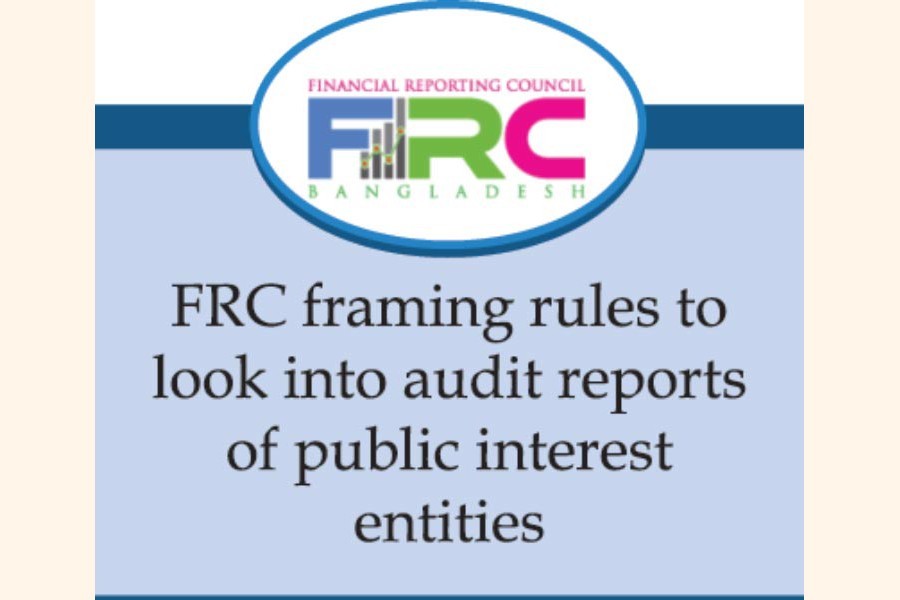The Financial Reporting Council (FRC) might soon seek financial statements from non-listed companies that are public interest entities (PIEs).
A move to this effect is now in the final stage, the people familiar with this development has told the FE.
Established under an act in 2015, the FRC is an independent regulator responsible for regulating auditors, accountants and actuaries in Bangladesh.
After formulation of necessary rules, the FRC will be able to seek financial statements from private companies for scrutiny and subsequent actions.
The companies listed on stock exchanges usually share audit reports to the public and shareholders, but others do not do the same.
They are required to submit statements to the Registrar of Joint Stock Companies (RJSC) in accordance with the licensing conditions.
But the RJSC office under commerce ministry is not mandated to analyse the papers of the non-listed companies.
A senior FRC official, however, said the proposed sharing financial information with the reporting council would help promote transparency and integrity in business.
"We're in the final stage of preparing the rule and hopeful of making an official gazette to this end shortly," he told the FE.
It is alleged that companies prepare a number of financial statements in connivance with auditing firms and use those for different unholy purposes.
Pharmaceutical companies reportedly bribe the doctors who often needlessly prescribe medicines.
Such payouts from the companies cannot be identified without verifying the healthy cash flow.
"Diagnostic centres pay doctors for referring patients to them. We need their financial statements for detection," the official stated.
Apart from this, irregularities abound while preparing financial statements including appointments of auditors.
Companies typically choose such audit firms they can dictate.
FRC sources said they earlier sought to collect reports of some reputed local food companies, but to no avail.
The businesses avoided sharing papers on the grounds that the Act concerned does not have any specific definition on 'public interest entity' or PIE.
"They came to us with senior lawyers justifying that they do not require supplying such reports to the FRC."
"Such companies are actually public interest entities, but we continuously fail to collect and analyse those for a lack of specific definition," said another official at the FRC.
According to sources, a company with an annual turnover of Tk 100 million may be defined as a public interest entity as per the proposed rule.
On the other hand, the Institute of Chartered Accountants of Bangladesh (ICAB) said public interest entity is clearly defined as those who handle public money.
It said the FRC should focus on the areas where public money is invested as equity and loans.
ICAB president AF Nesaruddin said, "The banks and insurance where peoples have invested should be given priority as they are the main PIEs."
The banks that lend public money should also be given priority, he added.
"This [PIE] has a wide definition. So, the FRC advances considering its capacity," said Mr Nesaruddin, also a senior partner at Hoda Vasi Chowdhury & Co, a leading local auditing firm.
As of August 2019, Bangladesh has 235,545 registered entities.
Of them, the number of private limited companies is 167802, public limited companies 3496, foreign companies 887, partnership firms 47525, society 14733 and trade organisation 1102, according to the RJSC.


